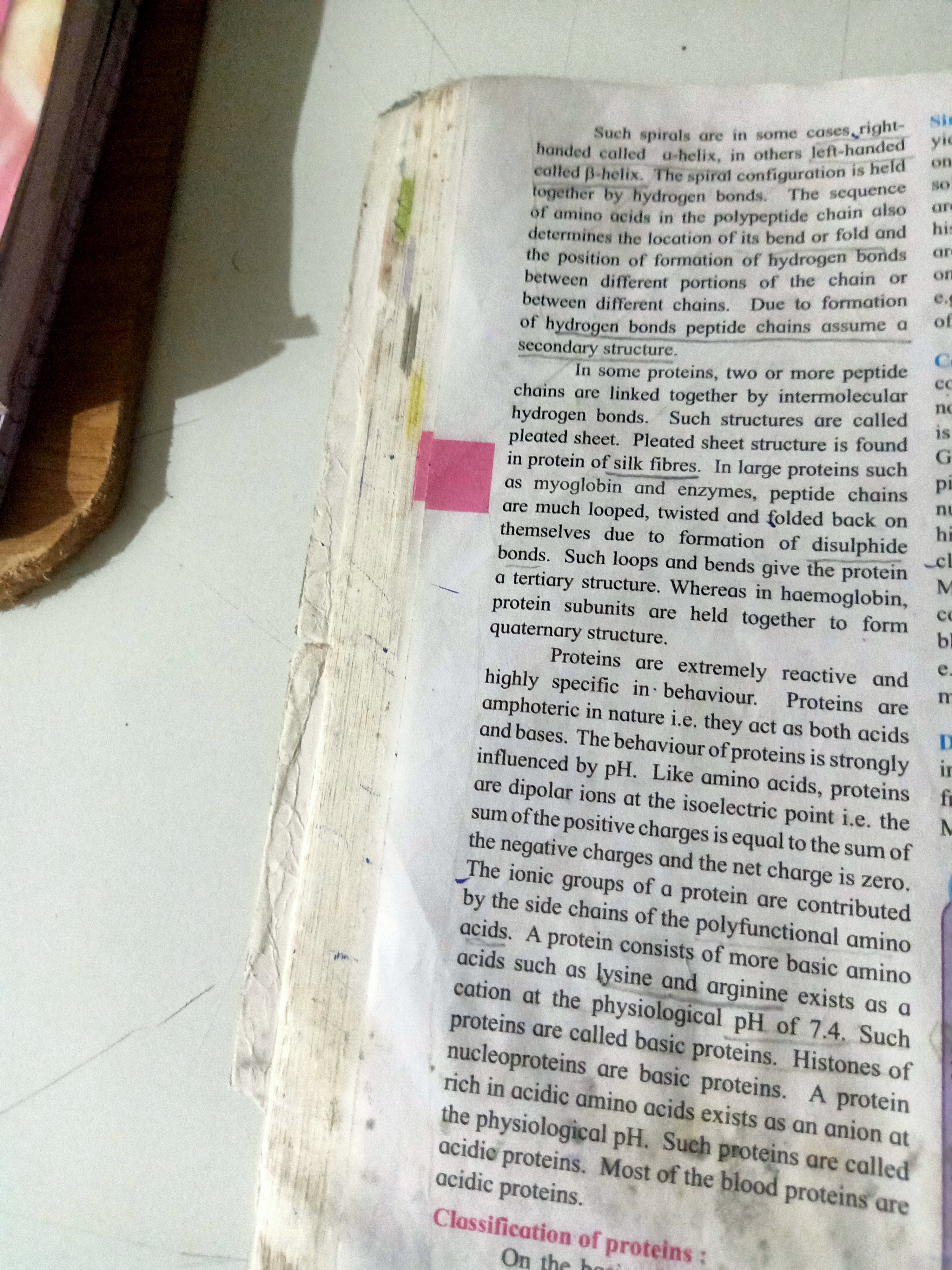What are the secondary structures of proteins and how do they relate to hydrogen bonds?

Understand the Problem
The text discusses the structure and classification of proteins, focusing on secondary structures like α-helix and β-helix, the role of hydrogen bonds, and the effects of pH on protein behavior.
Answer
Alpha-helix and beta-pleated sheets; stabilized by hydrogen bonds.
The secondary structures of proteins include alpha-helix and beta-pleated sheets. These structures are stabilized by hydrogen bonds between the polypeptide backbone's amino hydrogen and carboxyl oxygen atoms.
Answer for screen readers
The secondary structures of proteins include alpha-helix and beta-pleated sheets. These structures are stabilized by hydrogen bonds between the polypeptide backbone's amino hydrogen and carboxyl oxygen atoms.
More Information
Secondary structures are crucial for protein folding and function. The alpha-helix is a right-handed coil, while the beta-pleated sheet consists of strands linked side by side.
Tips
A common mistake is assuming that secondary structures are the entire protein's structure, but they are just localized, repeated motifs.
Sources
- Biochemistry, Secondary Protein Structure - StatPearls - NCBI - ncbi.nlm.nih.gov
- Protein secondary structure - Wikipedia - en.wikipedia.org
AI-generated content may contain errors. Please verify critical information